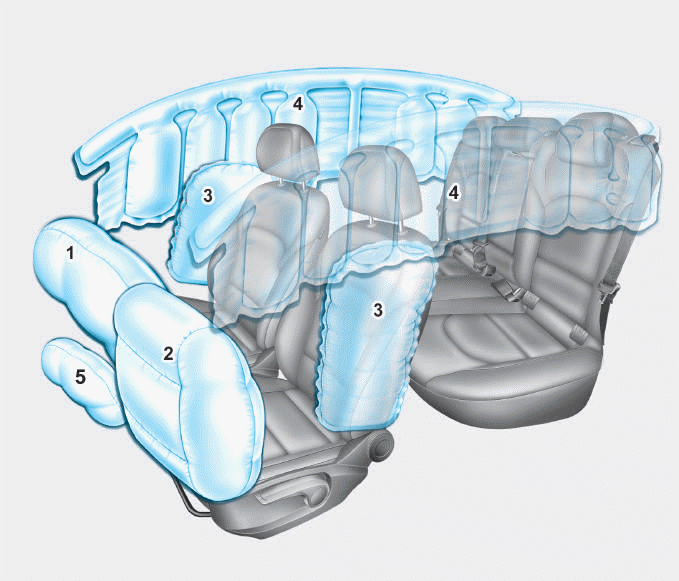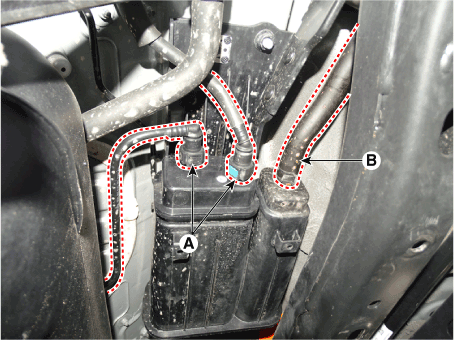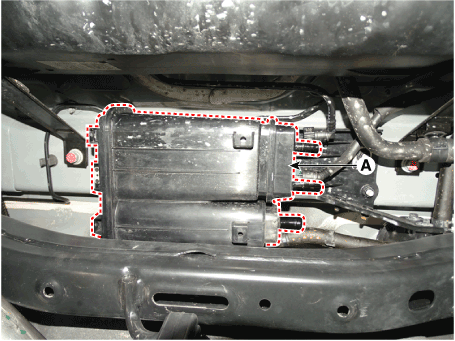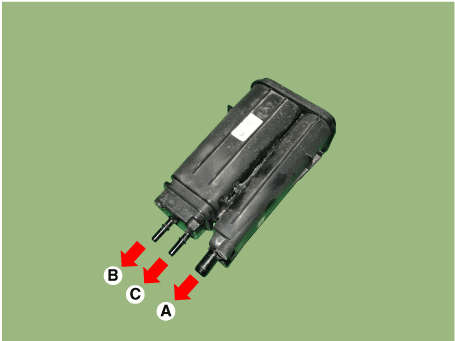Hyundai i-30: Evaporative Emission Control System / Canister
Repair procedures
| Removal |
| 1. |
Turn the ignition switch OFF and disconnect the battery (-) terminal.
|
| 2. |
Disconnect the vapor hose quick-connectors (A).
|
| 3. |
Disconnect the vent hose quick-connector (B).
|
| 4. |
Remove the canister (A).
|
| Inspection |
| 1. |
Check for the following items visually.
A : Canister ↔ Atmosphere
B : Canister ↔ Fuel Tank
C : Canister ↔ Intake Manifold
|
| Installation |
| 1. |
Install in the reverse order of removal.
|
 Schematic diagrams
Schematic diagrams
Schematic Diagram
Canister
Canister is filled with charcoal and absorbs evaporated vapor in fuel tank.
The gathered fuel vapor in canister is drawn into the intake manifold by the
ECM/PCM when appropriate conditions are set...
 Fuel Filler Cap
Fuel Filler Cap
Description and operation
Description
A ratchet tightening device on the threaded fuel filler cap reduces the chances
of incorrect installation, which would seal the fuel filler...
Other information:
Hyundai i30 (PD) 2018-2025 Service Manual: Description and operation
Description The SMART KEY system is a system that allows the user to access and operate a vehicle in a very convenient way. To access the vehicle, no traditional key or remote control unit is needed. The user carries a SMART KEY FOB which does not require any conscious actions by the user (e...
Hyundai i30 (PD) 2018-2025 Owner's Manual: Safety precautions
Adjusting the seats so that you are sitting in a safe, comfortable position plays an important role in driver and passenger safety together with the seat belts and air bags in an accident. WARNING Do not use a cushion that reduces friction between the seat and the passenger...
Categories
- Manuals Home
- 3rd Generation i30 Owners Manual
- 3rd Generation i30 Service Manual
- Exhaust System (DPF) Warning Light. Glow Indicator Light
- Shift-lock system. Shift-lock release
- Front windscreen wiper service position
- New on site
- Most important about car
Air bag - supplemental restraint system

1. Driver’s front air bag
2. Passenger’s front air bag
3. Side air bag*
4. Curtain air bag*
5. Knee air bag*
6. Front passenger air bag ON/OFF
switch
Copyright © 2025 www.hi30.net



